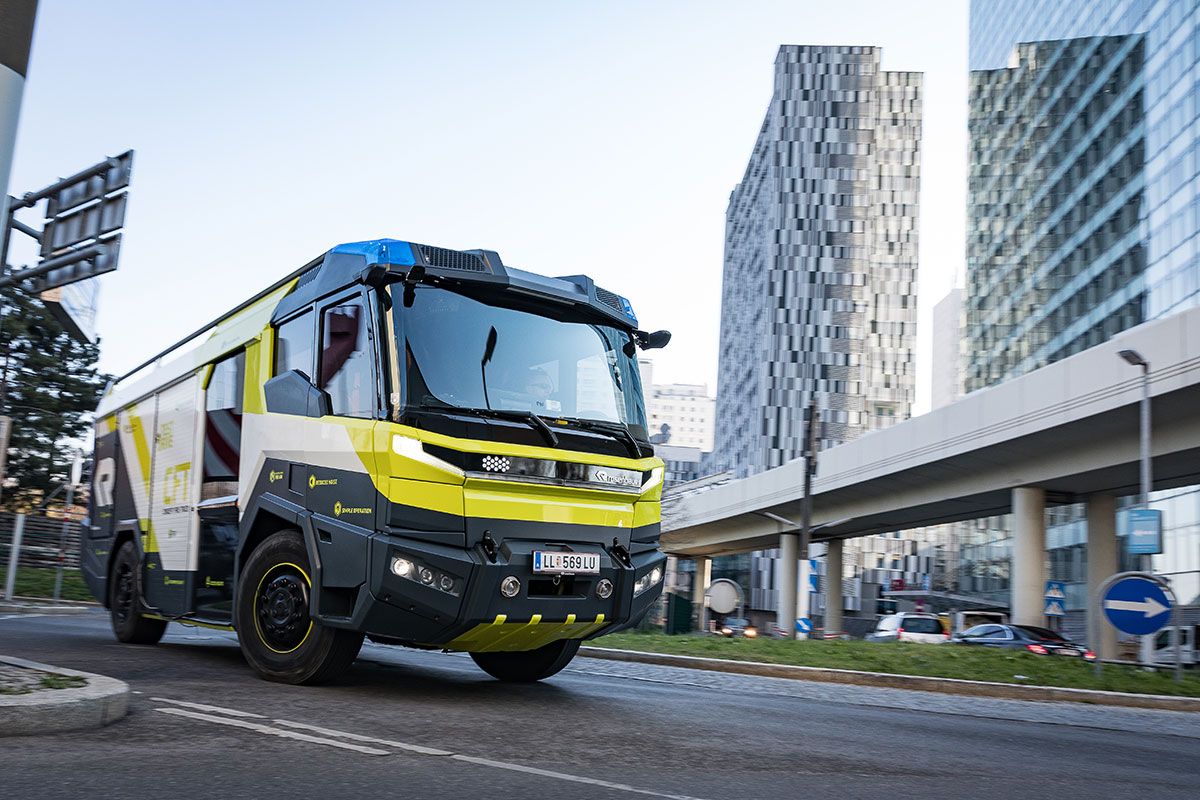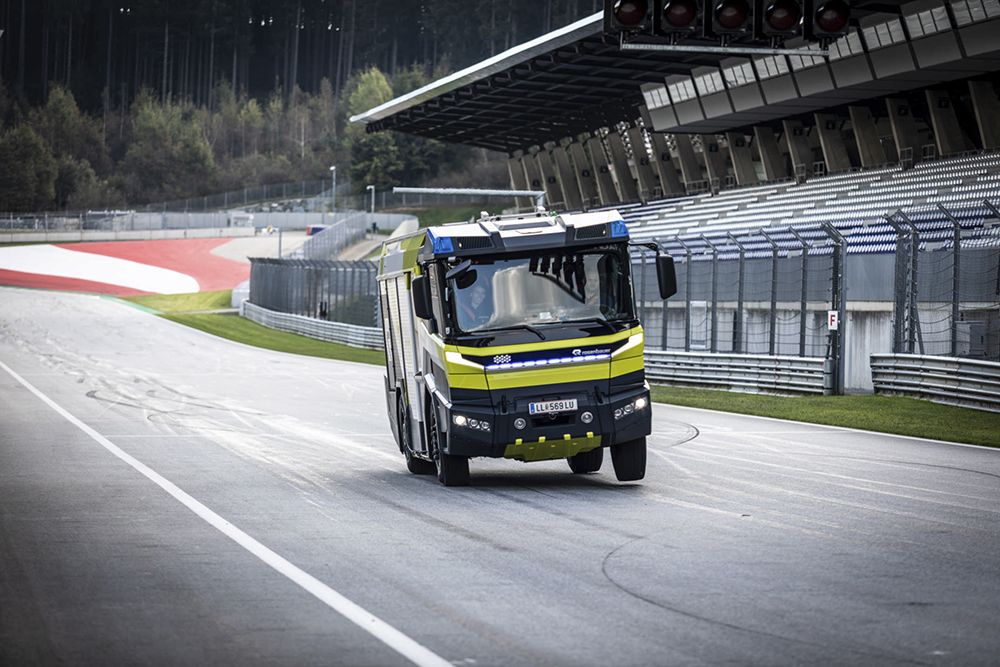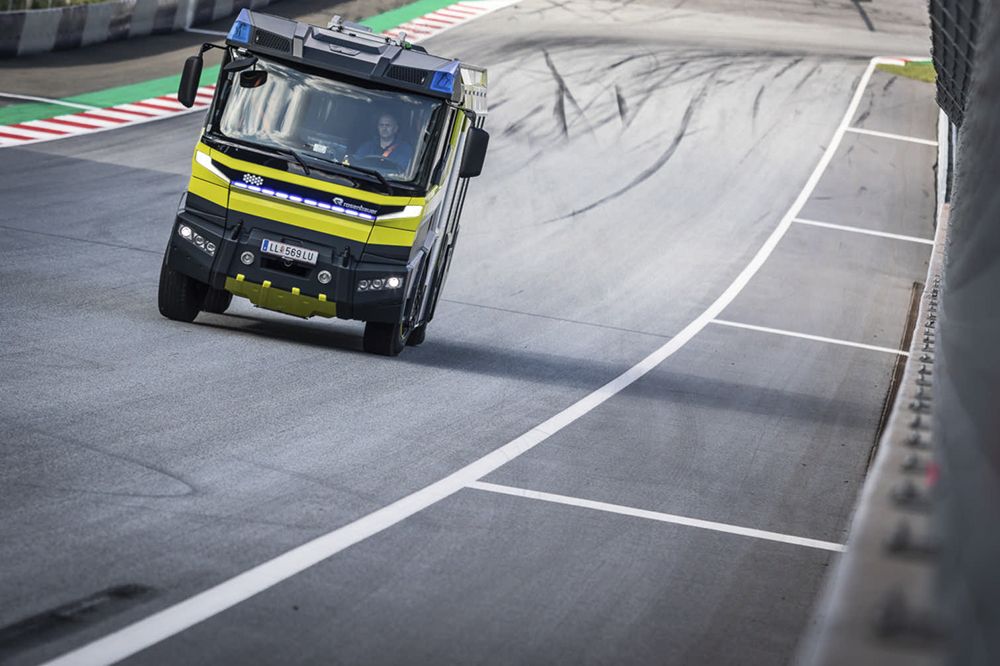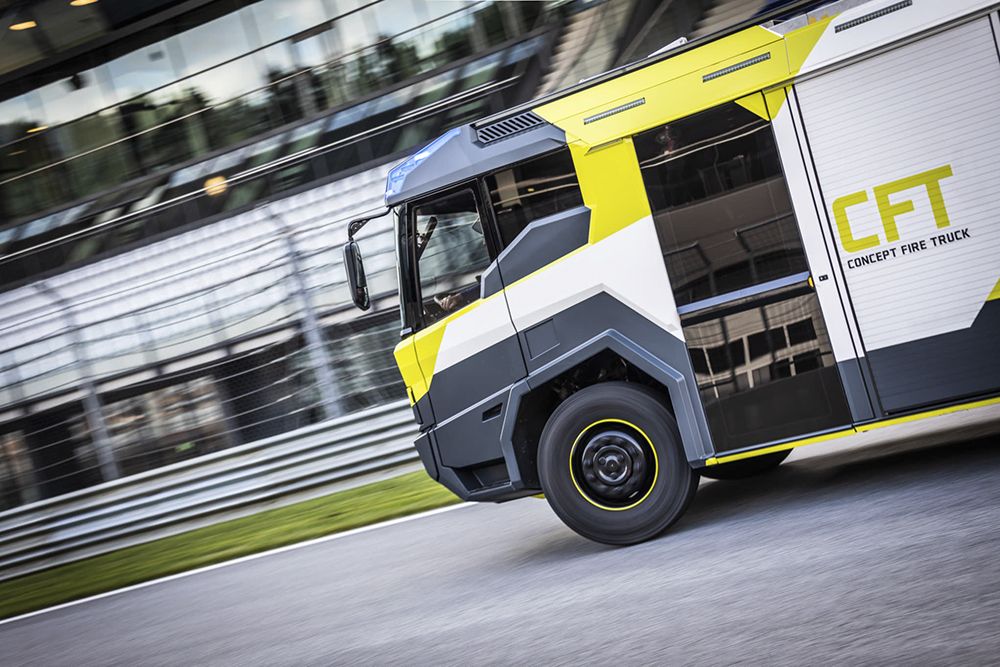Just like any other piece of hardware meant to make our lives easier (or save them, for that matter), fire trucks have evolved and improved over the years. While the very first fire-extinguishing tools were mere hand-action pumps that took water out of a bucket or large tub and sprayed it onto burning buildings, we can tell you with certainty that there’s now an all-electric fire truck ready to report for duty.
Revealed in prototype shape back in 2016, Rosenbauer’s fire truck, still dubbed CFT (Concept Fire Truck) was unveiled by the Menlo Park Fire Protection District’s fire chief with firm assurances that the department will buy one such vehicle to complement its firefighting fleet.
Is an All-Electric Fire Truck Really Viable?
One attribute that stands for every fire truck out there would be this: customizable. In fact, make that ultra-customizable. See, a fire truck needs to be adaptble depending on the environment it serves. You’ve got your urban fire trucks, of course, but then there are wildland firefighting vehicles that need to be smaller and better in off-road conditions, you’ve got airport crash rigs, and heavy rescue vehicles used after railway or tram accidents. Thus, each of these vehicles must sport different abilities, according to their ‘workplace.’
What’s more, the agility aspect was given the utmost attention because, well, a fire truck must handle better than your, let’s say, school bus or garbage truck. To achieve the handling abilities of a ‘large sports utility vehicle’ – those were Rosenbauer’s words – the CFT has a center of gravity that’s 20 centimeters (inches) lower compared to your run-of-the-mill fire truck. It even has a 50:50 weight distribution ration between the two axles. Allegedly, the CFT can swiftly change lanes at speeds of up to 70 kilometers per hour (roughly 44 miles per hour). Oh, and yeah, they’ve put those characteristics to the test on a racetrack, as you can see in the video below:
Naturally, you must be wondering what will happen in the event the fire truck’s battery depletes during a call. Well, there actually is a safety net concocted by Rosenbauer to prevent such a misfortune. According to CBS San Francisco, the truck has a diesel generator as a backup power source (think of it as a range extender), so that’s a pretty useful plan B when other people’s lives are at stake.
The all-electric fire truck is the exact opposite of cheap
According to the letter of intent posted on the Menlo Park Fire Protection District website, the downpayment alone (which lets the brigade reserve a production slot for the electric fire truck) is $200,000. On top of that there’s a $100,000 first payment due after the pre-construction meeting, a $700,000 pre-shipment payment after the final inspection at Rosenbauer’s factory, and a final payment due after arrival and inspection at the Fire District. Draw a line and you get a hefty $1,112,900 price tag.
While that’s certainly not cheap, Rosenbauer says that its all-electric fire truck offers what it calls ‘direct value potential.’ In English, running it would lead annual savings of several thousand dollars, assuming that the rig is battery-operated 90 percent of the time over a fire department’s annual average mileage of about 6,200 miles.
What’s more, Popular Mechanics reports that average prices for a conventional fire truck similar to the CFT revolve around $500,000, and that’s before you’ve vectored in the additional equipment and the final rig configuration. So, taking it all into account, a $1 million+ price tag might not be that far-fetched after all, given that an all-electric fire truck will eat up less money for maintenance and running.




